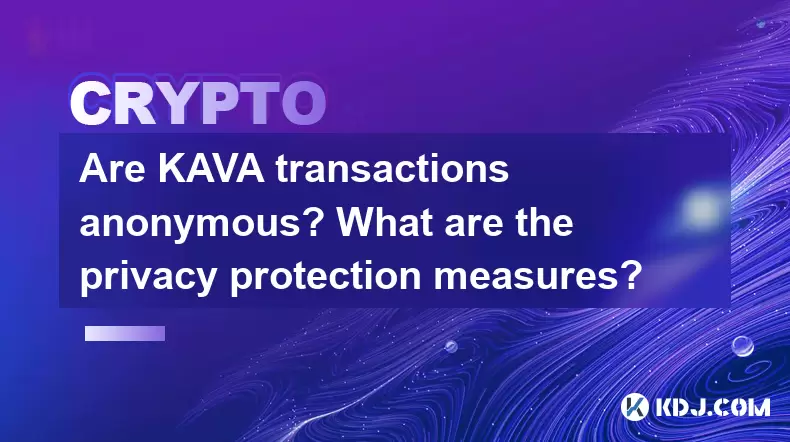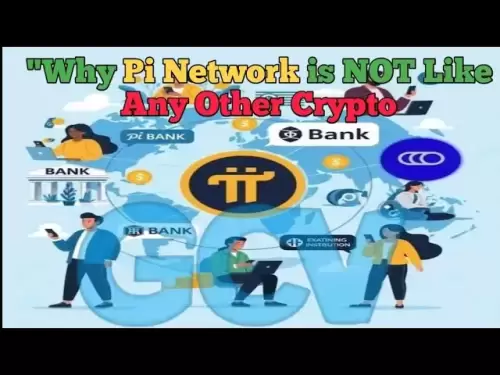-
 Bitcoin
Bitcoin $118300
1.01% -
 Ethereum
Ethereum $4215
0.69% -
 XRP
XRP $3.198
-3.83% -
 Tether USDt
Tether USDt $1.000
-0.01% -
 BNB
BNB $803.4
-0.53% -
 Solana
Solana $180.3
-0.67% -
 USDC
USDC $0.9998
-0.01% -
 Dogecoin
Dogecoin $0.2334
-1.49% -
 TRON
TRON $0.3394
0.86% -
 Cardano
Cardano $0.7980
-1.45% -
 Chainlink
Chainlink $22.19
6.65% -
 Hyperliquid
Hyperliquid $43.41
0.13% -
 Stellar
Stellar $0.4407
-3.13% -
 Sui
Sui $3.843
-2.24% -
 Bitcoin Cash
Bitcoin Cash $564.7
-3.74% -
 Hedera
Hedera $0.2588
-3.41% -
 Ethena USDe
Ethena USDe $1.001
0.00% -
 Avalanche
Avalanche $23.64
-3.37% -
 Litecoin
Litecoin $120.0
-4.01% -
 Toncoin
Toncoin $3.342
-1.11% -
 UNUS SED LEO
UNUS SED LEO $9.038
0.60% -
 Shiba Inu
Shiba Inu $0.00001347
-0.81% -
 Uniswap
Uniswap $10.69
-4.58% -
 Polkadot
Polkadot $4.034
-1.30% -
 Dai
Dai $1.000
0.01% -
 Bitget Token
Bitget Token $4.472
-1.52% -
 Cronos
Cronos $0.1571
-3.04% -
 Pepe
Pepe $0.00001207
-2.21% -
 Monero
Monero $273.8
-3.19% -
 Ethena
Ethena $0.7520
2.75%
Are KAVA transactions anonymous? What are the privacy protection measures?
KAVA transactions aren't anonymous by default, but users can enhance privacy using multiple addresses, mixing services, and KAVA's encryption and zero-knowledge proofs.
May 07, 2025 at 05:43 pm

Are KAVA transactions anonymous? What are the privacy protection measures?
KAVA is a blockchain platform designed to bring decentralized finance (DeFi) applications to the masses. As with many blockchain platforms, privacy and anonymity are significant concerns for users. This article delves into the anonymity of KAVA transactions and the privacy protection measures implemented by the platform.
Understanding KAVA Transactions
KAVA transactions, like those on many other blockchain platforms, are recorded on a public ledger. This means that anyone can view the details of a transaction, including the sender's and recipient's addresses, the amount transferred, and the timestamp of the transaction. However, the anonymity of these transactions depends on how users manage their addresses and the measures taken by the platform to enhance privacy.
Anonymity of KAVA Transactions
KAVA transactions are not inherently anonymous. The blockchain's transparent nature means that anyone can trace transactions back to their source if they have access to the necessary data. For instance, if a user's wallet address is linked to their real-world identity, it becomes possible to track their transactions.
To achieve a higher level of anonymity, users can employ several techniques:
- Using multiple addresses: By creating and using different addresses for different transactions, users can obscure the flow of funds and make it more difficult for outsiders to link transactions to a single individual.
- Mixing services: These services pool funds from multiple users and redistribute them, making it harder to trace the origin of funds.
- Privacy-focused wallets: Some wallets are designed to enhance user privacy by automatically generating new addresses for each transaction.
Privacy Protection Measures on KAVA
KAVA has implemented several measures to enhance user privacy and security:
- Encryption: All data transmitted on the KAVA network is encrypted to prevent unauthorized access. This includes transaction data and communication between nodes.
- Zero-knowledge proofs: KAVA leverages zero-knowledge proofs to allow users to prove the validity of transactions without revealing any underlying data. This enhances privacy by allowing users to verify transactions without disclosing sensitive information.
- Decentralized governance: KAVA's governance model is decentralized, meaning that no single entity has control over the network. This reduces the risk of data breaches and unauthorized access to user information.
KAVA's Commitment to Privacy
KAVA's development team is committed to continuously improving the platform's privacy features. They regularly update the protocol to address new privacy concerns and incorporate feedback from the community. This ongoing effort ensures that KAVA remains at the forefront of privacy protection in the DeFi space.
User Responsibility in Maintaining Privacy
While KAVA provides several tools and measures to enhance privacy, users also have a role to play in maintaining their anonymity. Here are some steps users can take:
- Use strong passwords: Ensure that your wallet and account passwords are strong and unique to prevent unauthorized access.
- Enable two-factor authentication (2FA): Adding an extra layer of security can significantly reduce the risk of your account being compromised.
- Regularly update software: Keep your wallet and other software up to date to benefit from the latest security patches and improvements.
- Be cautious with personal information: Avoid sharing personal information, such as your real name or email address, in conjunction with your wallet addresses.
Conclusion on KAVA Transaction Anonymity
In conclusion, KAVA transactions are not anonymous by default due to the public nature of the blockchain. However, users can enhance their anonymity through various techniques and tools. KAVA's commitment to privacy is evident in its implementation of encryption, zero-knowledge proofs, and decentralized governance. Users must also take responsibility for their privacy by following best practices and staying informed about the latest developments in the platform's privacy features.
Frequently Asked Questions
Can I use KAVA without revealing my identity?
While KAVA transactions are recorded on a public ledger, you can enhance your anonymity by using multiple addresses, mixing services, and privacy-focused wallets. However, complete anonymity is challenging to achieve without additional measures.
How does KAVA's use of zero-knowledge proofs enhance privacy?
Zero-knowledge proofs allow users to prove the validity of transactions without revealing any underlying data. This means that you can verify transactions without disclosing sensitive information, enhancing your privacy on the KAVA network.
What should I do if I suspect my KAVA account has been compromised?
If you suspect your KAVA account has been compromised, immediately change your password, enable two-factor authentication if not already enabled, and contact KAVA's support team for further assistance. It's also crucial to monitor your account for any unauthorized transactions.
Are there any plans to improve privacy features on KAVA?
KAVA's development team is committed to continuously improving the platform's privacy features. They regularly update the protocol to address new privacy concerns and incorporate feedback from the community, ensuring that KAVA remains at the forefront of privacy protection in the DeFi space.
Disclaimer:info@kdj.com
The information provided is not trading advice. kdj.com does not assume any responsibility for any investments made based on the information provided in this article. Cryptocurrencies are highly volatile and it is highly recommended that you invest with caution after thorough research!
If you believe that the content used on this website infringes your copyright, please contact us immediately (info@kdj.com) and we will delete it promptly.
- Gemini AI's Crypto Crystal Ball: Predicting 1000x Gains with Meme Coins?
- 2025-08-11 02:50:12
- Cold Wallet Crypto Presale: Your Price Edge in the Wild West of Crypto
- 2025-08-11 02:50:12
- Rollblock, Solana, and Cardano: Unpacking the Hottest Trends in Crypto
- 2025-08-11 03:50:12
- Cold Wallet: Your Ticket to Massive ROI in the Wild World of Crypto
- 2025-08-11 03:50:12
- BONK Price Check: Solana Meme Coin Faces Ethereum Migration Heat?
- 2025-08-11 03:55:19
- Lil Pepe: The Undervalued Meme Coin Set to Explode in 2025?
- 2025-08-11 02:30:12
Related knowledge

How to purchase Aragon (ANT)?
Aug 09,2025 at 11:56pm
Understanding Aragon (ANT) and Its PurposeAragon (ANT) is a decentralized governance token that powers the Aragon Network, a platform built on the Eth...

Where to trade Band Protocol (BAND)?
Aug 10,2025 at 11:36pm
Understanding the Role of Private Keys in Cryptocurrency WalletsIn the world of cryptocurrency, a private key is one of the most critical components o...

What is the most secure way to buy Ocean Protocol (OCEAN)?
Aug 10,2025 at 01:01pm
Understanding Ocean Protocol (OCEAN) and Its EcosystemOcean Protocol (OCEAN) is a decentralized data exchange platform built on blockchain technology,...

Where can I buy UMA (UMA)?
Aug 07,2025 at 06:42pm
Understanding UMA and Its Role in Decentralized FinanceUMA (Universal Market Access) is an Ethereum-based decentralized finance (DeFi) protocol design...

How to buy Storj (STORJ) tokens?
Aug 09,2025 at 07:28am
Understanding Storj (STORJ) and Its Role in Decentralized StorageStorj is a decentralized cloud storage platform that leverages blockchain technology ...

What is the best app to buy Nano (NANO)?
Aug 09,2025 at 03:35am
Understanding Nano (NANO) and Its Unique FeaturesNano is a feeless, instant cryptocurrency designed for fast peer-to-peer transactions. Unlike many ot...

How to purchase Aragon (ANT)?
Aug 09,2025 at 11:56pm
Understanding Aragon (ANT) and Its PurposeAragon (ANT) is a decentralized governance token that powers the Aragon Network, a platform built on the Eth...

Where to trade Band Protocol (BAND)?
Aug 10,2025 at 11:36pm
Understanding the Role of Private Keys in Cryptocurrency WalletsIn the world of cryptocurrency, a private key is one of the most critical components o...

What is the most secure way to buy Ocean Protocol (OCEAN)?
Aug 10,2025 at 01:01pm
Understanding Ocean Protocol (OCEAN) and Its EcosystemOcean Protocol (OCEAN) is a decentralized data exchange platform built on blockchain technology,...

Where can I buy UMA (UMA)?
Aug 07,2025 at 06:42pm
Understanding UMA and Its Role in Decentralized FinanceUMA (Universal Market Access) is an Ethereum-based decentralized finance (DeFi) protocol design...

How to buy Storj (STORJ) tokens?
Aug 09,2025 at 07:28am
Understanding Storj (STORJ) and Its Role in Decentralized StorageStorj is a decentralized cloud storage platform that leverages blockchain technology ...

What is the best app to buy Nano (NANO)?
Aug 09,2025 at 03:35am
Understanding Nano (NANO) and Its Unique FeaturesNano is a feeless, instant cryptocurrency designed for fast peer-to-peer transactions. Unlike many ot...
See all articles

























































































